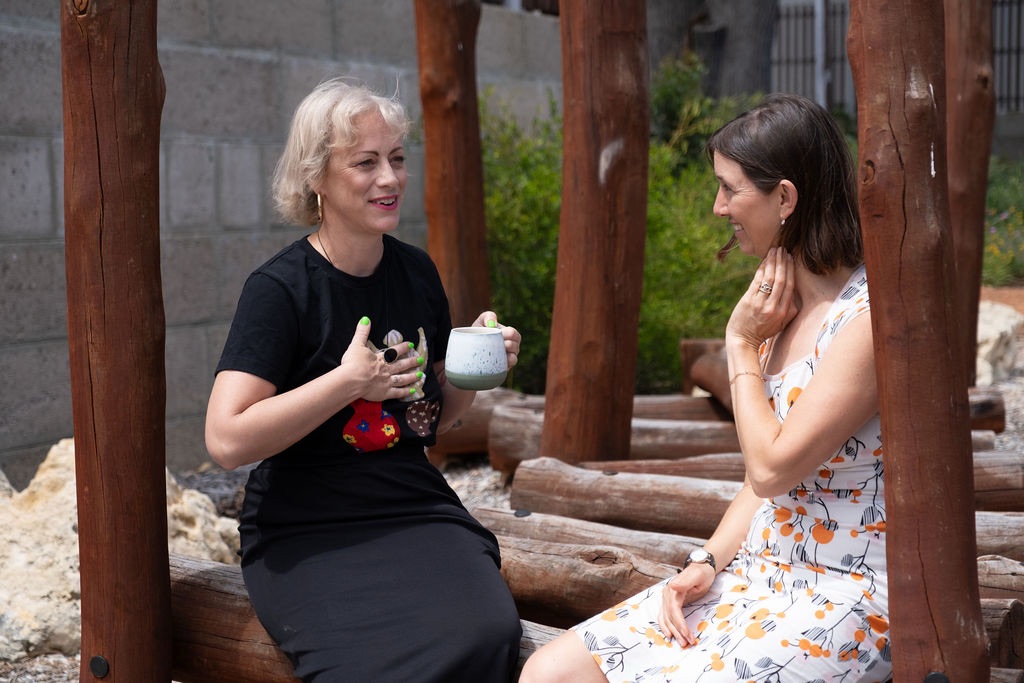Clutter and disorganisation can pose unique challenges for individuals with disabilities
Whilst we are all guilty of having extra things lying around the house, if you are one of 4 million Australian’s living with a disability. The clutter you live with can exacerbate difficulties to physical health, mental health, mobility, and sensory processing. According to the World Health Organisation, about 15% of the world’s population has some form of disability, and this number is expected to increase due to aging, chronic diseases, and environmental factors. People with disabilities face many challenges and barriers in accessing services, such as lack of information, accessibility, affordability, safety, and participation. These barriers can limit their opportunities and choices, and affect their quality of life, health, and well-being.
The National Disability Insurance Scheme (NDIS) in Australia is a government initiative designed to provide support and services to individuals with disabilities, aiming to enhance their quality of life and promote their independence and inclusion in the community. While the NDIS primarily focuses on funding supports related to disability-related needs such as personal care, therapy, and assistive technology, it also acknowledges the importance of addressing factors such as:
 Why decluttering is important for those living with disability?
Why decluttering is important for those living with disability?
- Mobility Impairments: Clutter can obstruct pathways and create physical barriers for individuals who use mobility aids such as wheelchairs or walkers. It can make it challenging to navigate through spaces safely and independently.
- Visual Impairments: For individuals with visual impairments, clutter can pose a hazard by increasing the risk of tripping or bumping into objects. It can also disrupt the use of navigation aids and make it harder to locate important items.
- Sensory Processing Disorders: Clutter can overwhelm individuals with sensory processing disorders by overloading their sensory systems. This can lead to increased stress, anxiety, and difficulty focusing on tasks.
- Cognitive Disabilities: People with cognitive disabilities may struggle with organising and decluttering their living spaces because of challenges with decision-making, executive functioning, and memory. Clutter can further exacerbate these difficulties and make it harder to maintain a structured environment.
- Safety Risks: Clutter can increase the risk of accidents and injuries for individuals with disabilities.
 How can Declutter with Kiah help people living with a disability?
How can Declutter with Kiah help people living with a disability?
In order to make services more inclusive of people with disabilities, there is no one-size-fits-all solution.
Overall, while the NDIS primarily focuses on providing funding for disability-related supports and services, it recognises the importance of addressing environmental factors such as clutter that may impact the well-being and independence of individuals with disabilities. We work with participants and their families, support coordinators and service providers to explore options for managing clutter and accessing the supports they need to create environments that support their goals and preferences.
We enjoy working with people of all ages including children, families and individuals of all abilities.
Here’s how the NDIS may relate to clutter:
- Support Coordination: NDIS participants may receive support coordination services as part of their plan. Support coordinators can assist participants in accessing various supports and services, including assistance with managing their living environment. They may help individuals identify strategies for decluttering and organising their homes to improve safety, accessibility, and overall well-being.
- Specialised Supports: In some cases, participants may require specialised supports related to managing clutter because of their disability. For example, individuals with hoarding disorder or executive functioning difficulties may benefit from therapeutic interventions or professional organising services. The NDIS may fund these supports as part of the participant’s plan if they are deemed necessary to address the individual’s disability-related needs.
- Assistive Technology: The NDIS funds a range of assistive technology devices and aids to support individuals with disabilities in their daily lives. This may include tools and equipment designed to assist with organisation, such as electronic organisers, adaptive furniture, or storage solutions. These assistive technologies can help individuals manage clutter more effectively and maintain a safe and functional living environment.
- Home Modifications: In some cases, home modifications may be necessary to accommodate the needs of individuals with disabilities and address safety concerns related to clutter. The NDIS provides funding for home modifications, which may include adaptations to reduce clutter and improve accessibility, such as installing additional storage solutions, widening doorways, or modifying layout and design to create more open and navigable spaces.
- Capacity Building Supports: The NDIS also offers capacity building supports aimed at empowering individuals with disabilities to develop skills and strategies to live more independently and participate fully in their communities. This may include supports related to household management, organisation, and self-care, which can help individuals address clutter and maintain a safe and comfortable living environment.
What can we offer NDIS Self & Plan managed participants?
- Personalised quotes and action plans to suit them.
- Professional service tailored to the participants wants and needs.
- We can communicate with your support coordinator and family members to ensure that the service we offer is suitable for you. Being safe at home is not only essential to you reaching your goals, but it is essential to your health and wellbeing.


